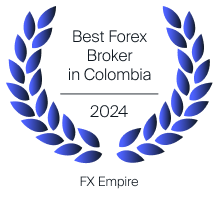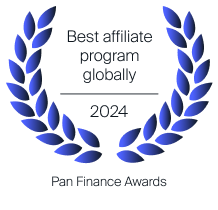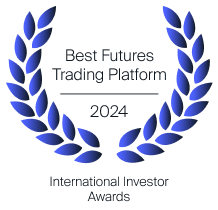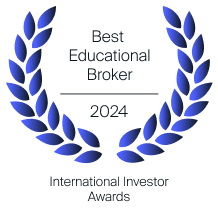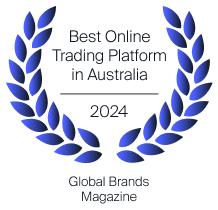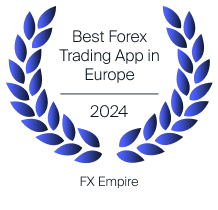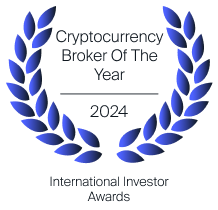France 40 Trading
 Loading...
Loading... | Instrument:france_40 |
CAC 40 Stock Market Index
Introducing the CAC 40, managed by the Euronext exchange group the CAC it is known as the benchmark index for the Paris Stock Exchange. Aptly named, the CAC-40 (CAC quarante) is a free floating market capitalisation index, which reports the performance of 40 of the most popular traded shares listed on the Euronext Paris exchange, and the most widely used indicator of the French stock market.
CAC History
‘Compagnie des Agents de Change’ is what ‘CAC’ stood for when the group originally operated in the Paris Stock Exchange in 1801. With the introduction of the Stock Market Reform Act of January 1988, the Compagnie des Agents de Change was abolished and the ‘Société des Bourses Françaises’ was incorporated as a limited company. The CAC index however, remained the nickname with an additional 40 listed companies that later made up the name we know today as, the CAC 40, and was later dubbed ‘Cotation Assistée en Continu’. In January 1988, the index experienced an all-time low of 893.82. September of 2000 saw an enormous recovery, hitting a record breaking high of 6922.33 for the index. The CAC family is made up of Frances most profitable companies, which make up total market capitalisation of €1.1 trillion. The most important companies that are included are L’Oreal, BNP Paribas, AXA, Danone, Orange, Sanofi, Total, L’VMH, Airbus Group and Vinci, that range in market capitalisations from €5 billion to €105 billion.
CAC 40 Index composition
‘Le Conseil Scientifique’ is the committee that carries out the selection and choice of the members who are included in the CAC 40 stocks. Involved in the council’s decision making process is the French market regulator AMF (Autorité des Marchés Financiers), French Treasury Department and France’s Central Bank. To be listed with CAC the company’s stocks must meet certain criteria and trading volumes that are based on the rules of the Euronext Paris Exchange (Parise Bourse), in addition, the company must have their main headquarters based in France. Market capitalisation is based on issuer shares and the minimum requirement for the free float of 15%. The CAC 40 differs in this respect from other global indices as they seek market-capitalisation where as others such as Nikkei 225 are price weighted indices. Market-capitalisation indices are reviewed by the index committee, specifically on the third Friday of September every year.
| Companies | Market capital % |
|---|---|
| Sanofi | 12.19% |
| Total | 11.96% |
| BNP Paribas | 6.24% |
| LVMH | 5.02% |
| Air Liquide | 4.08% |
Factors that influence the overall index price
The main driver behind the price of an individual stock is supply and demand, economical changes and trends, global and national events, both scheduled, like those appearing in the Economic Calendar and unforseen ones. However, changes within the country would be the most influential on that country’s indices. Investors are most likely to pay more for the stock if the earning potential is strong and profits are consistent. The industry that the company is directly involved in, distributing products or services, needs to have a healthy demand appetite. While the current company performance is important, future prospects are looked at in a more serious manner, as investments are generally done for future gains. A broad index (like the S&P 500) price usually moves smoother than that of individual shares or sector-specific indices. Meaning, investors can benefit from diversification due to the amount of companies listed under the CAC 40. Traders are able to then own a few stocks on a major index with committing only a small amount of financial capital.
Why trade indices
A stock index embodies a country’s top companies shares from a particular exchange. In this case the CAC 40 (CAC quarante) represents 40 of the largest companies traded on the Euronext Paris Stock Exchange. As France is one of the leading economies in Europe, the CAC is the strongest indicator of economic performance.
There are many advantages to trading indices, they are made up of several stocks and there is constant market movement in each stock. This can contribute to their share price being relatively volatile, and such occurrences can happen when there is a major economic or political event that will affect the country as a whole. They are more liquid than equities for instance. Traders are still exposed to market risk, however, with CAC 40 CFD trading at a much lower level, as they never own the actual asset and the leveraged trading is available. Traders can place a buy on the CAC 40 and if the price goes up before they intend to sell, the traders will earn the price difference, if the price goes down, then they will sustain losses.
CAC Trading information
- CAC index trading hours are Monday to Friday 6:01 – 19:59 (GMT)
- The CAC moves in increments of 0.50
- Leverage of up to
- The minimum trade is 1
- The CAC index is priced in Euro
Trade CAC 40 with AvaTrade
AvaTrade is one of the best choices one can make when looking for a broker. Offering you the most accessible learning tools, trading information as well as a professional customer service team.
- Enjoy the security of trading with a globally regulated forex broker
- CAC index trading
- Go long or short – trade your view on the market
- A selection of powerful trading platforms, including MetaTrader 4 and MetaTrader 5 platforms for desktop, tablet & mobile
- Web trading platform (no download and installation required)
- Get an outstanding multi-lingual client support
CAC-40 Trading Main FAQs
- What is the CAC 40?
The CAC 40 is a capitalization weighted index of the 40 most significant values among the top 100 market caps on the Euronext Paris exchange. It is considered to be an excellent barometer of the French stock market and economy. The index includes such household names as L’Oreal and Renault, as well as other French giants such as Airbus and Carrefour. The CAC 40 is one of the primary national indices of the cross-border Euronext exchange.
- Should I trade the CAC 40?
As a major industrial nation’s benchmark stock exchange it certainly makes sense to trade the CAC 40. It can be an excellent way to speculate on the strength of the French economy. It is also a good way to speculate on the broader global economy because of the heavy concentration of luxury brands and consumer goods companies. It can also be good to have knowledge of the CAC 40 when there are important national events occurring in France as the CAC 40 can be very strongly impacted by news.
- What’s the best strategy to trade the CAC 40?
The best strategy for trading the CAC 40 will depend on the trader and the amount of time they have to devote to the market. Both scalping and day trading require the trader to be fully involved in the trade all day long, but swing trading can be done with a few hours over the weekend and a daily assessment of any upcoming data releases and a review of the major chart indicators and any news affecting the components of the CAC 40.
Join AvaTrade now and enjoy competitive spreads and other benefits of trading with a regulated, award-winning broker!



